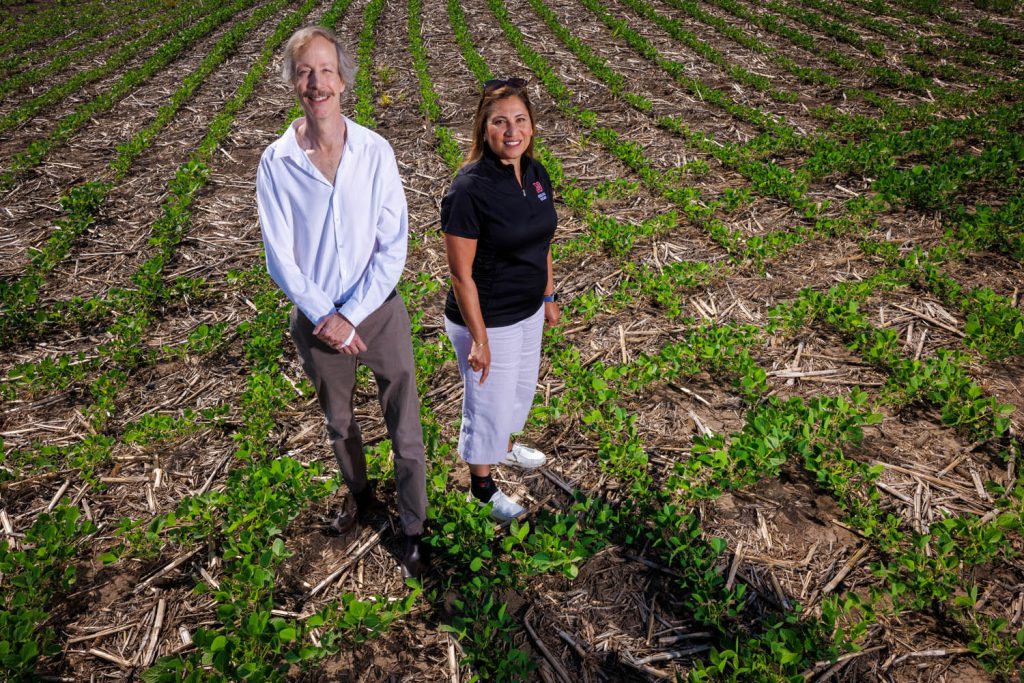
Exploring Ag, Climate Resilience Through Collaboration
A collaborative international “network of networks” aims to explore agricultural and climate resilience and food and water security as never before.
Nebraska ecologists Craig Allen and Tala Awada head a team that received a four-year, $400,000 grant from the National Science Foundation to establish the Network for Integrated Agricultural Resilience Research.
The network will generate research questions and share data, resources and expertise so affiliated researchers can more comprehensively examine the diversity, complexity and resilience of farming and agriculture in North America at a larger scale than previously possible.
“Most ecological research is done on a square-meter spatial scale and a two- to three-year temporal scale. We want to do research on a much larger scale,” said Allen, professor of natural resources and director of Nebraska’s Center for Resilience in Agricultural Working Landscapes, or CRAWL.
The network includes the U.S. Department of Agriculture’s Agricultural Research Service-funded Long-Term Agroecosystem Research Network; the Canada-based ResNet and the Agriculture Canada Living Labs Initiative; and the international, theory-focused Resilience Alliance. Additional funding from the university allowed Allen and Awada to expand the network to include partners in Mexico, ensuring it spans North America.

Such collaboration is key to pursuing global food security, Allen said. Working together, the networks may be able to identify tipping points at which agricultural systems are vulnerable to unwanted, destabilizing changes – the transformation of a grassland into a forest, for example.
“Often, there’s a trade-off between efficiency and resilience,” said Allen, the network’s coordinator. “We’re interested in what that tradeoff is, and what those tradeoffs cost.”
Nebraska’s leadership of the new network underscores the university’s long-standing commitment to research on climate resilience and sustainable food and water security, two of the university’s seven Grand Challenge thematic areas. It also highlights the university’s global leadership in agricultural resilience.
“Our diverse landowners and managers are interested in multiple outcomes on their land, and the involved networks will look beyond efficiency and profitability to include sustainability and resilience metrics and indicators across scales,” said Awada, associate dean and director of Nebraska’s Agricultural Research Division and professor of plant ecophysiology.
+ Additional content for Exploring Ag, Climate Resilience Through Collaboration
Nebraska news release: Husker ecologists forge international network focused on ag, climate resilience
